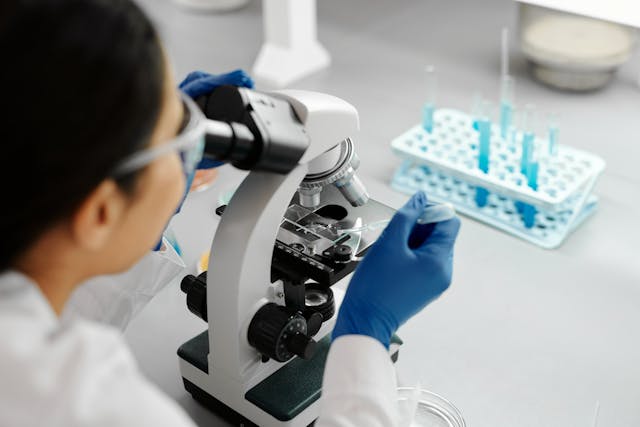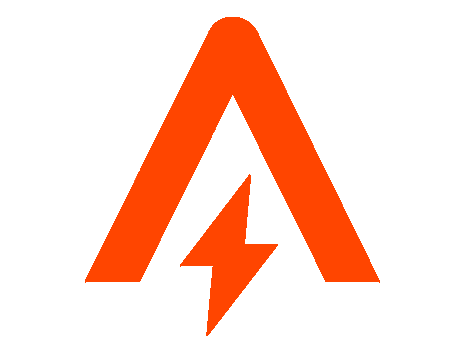Critical Role of Clinical Trials in Medical Innovation

Bulking up and adding muscle is a tough challenge. It demands a well-rounded strategy involving targeted nutrition, progressive resistance training, and sufficient recovery. Among these crucial components for muscle growth, maintaining consistency in the nutritional aspect often poses a difficulty for many men.
Ingesting enough overall calories is important, but providing our bodies with sufficient protein is essential to propel muscle growth into action. Without the amino acids that protein supplies, even the most strenuous workouts won’t lead to significant muscle development. For this reason, creating a personalized high-protein diet is crucial if your goal is achieving maximum muscle mass.
This comprehensive guide covers everything you need to harness protein’s muscle-building potential. You’ll uncover ideal protein intake levels based on your weight and physical activity and the top food sources to incorporate into your diet.
Moreover, you’ll learn invaluable information on the optimal timing of protein consumption around your workouts to enhance nutrient effectiveness and muscle development. If substantial muscle gains sound appealing, continue reading to understand how a high-protein dietary regimen can accelerate increases in strength and size.
The Importance of Protein for Muscle Building
Among the three macronutrients, dietary protein offers unique advantages that specifically enhance muscle growth:
Synthesizing Muscle Protein – Protein supplies the amino acids necessary for your body to continuously build new muscle proteins, thereby boosting rates of muscle protein synthesis for enhanced muscle growth.
Repairing Training Damage – Intense workouts create tiny tears in muscle fibers. Consuming protein aids in repair and ultimately enlarges muscles.
Hormone Production – Amino acids assist in producing crucial hormones like testosterone and IGF-1, which are anabolic hormones that increase protein synthesis and contribute to significant muscle growth.
Achieving muscle growth requires an adequate intake of protein. But what is the exact amount necessary?
Daily Protein Intake Recommendations
The optimal daily amount of protein varies depending on your weight, the intensity of your training, and your goals. Here are some general guidelines:
Sedentary Adults – 0.8 grams of protein per kilogram of body weight or about 0.35 grams per pound. This comes out to roughly 56 grams per day for men and about 46 grams per day for women.
Endurance Athletes – 1.2 to 1.4 grams per kilogram or approximately 0.5 to 0.6 grams per pound supports metabolic needs.
Resistance Trainers – For muscle preservation and growth, higher intakes are recommended—with 1.6 to 2.2 grams per kilogram or about 0.7 to 1 grams per pound.
Aggressive Muscle Building – Levels exceeding 2.2 grams per kilogram or 1 gram per pound provide ample amino acids to fully support growth and repair.
For a 175-pound man aiming for muscle growth, aim for approximately 175 grams of protein daily. Weighing food and tracking your intake can help ensure you meet these daily targets. The timing of protein intake matters as well.
Optimal Timing for Protein Consumption
In addition to reaching daily protein goals, the timing of meals and nutrients in relation to workouts can further stimulate muscle growth:
Pre-Workout – Consuming 20-40 grams of protein about an hour before exercise can maintain amino acid levels and help minimize muscle breakdown.
Post-Workout – A similar amount of protein immediately following your workout can initiate recovery, repair, and growth, taking advantage of increased nutrient absorption.
Before Bed – Eating 30-50 grams of slow-digesting protein just before sleeping provides overnight amino acids, which is beneficial as muscle protein synthesis peaks during sleep.
Adhering to this pre-, intra-, and post-workout protein intake model ensures that muscles are adequately fueled, preparing your body for rapid increases in strength and size.
Top High-Protein Foods
Incorporate a variety of lean, complete protein sources into your daily meals, such as:
Lean Beef and Lamb – These provide high levels of muscle-building leucine as well as iron, zinc, and B vitamins. Opt for varieties like 90/10 ground beef and flank steak.
Skinless Chicken and Turkey – These are low-calorie, versatile poultry options that go well with carbohydrates like rice and vegetables.
Fish and Seafood – Choices like salmon, tuna, cod, and tilapia offer more than 20 grams of protein per 3-ounce serving while also supplying beneficial omega fatty acids.
Eggs and Egg Whites – Rich in BCAAs, eggs support muscle repair and growth. Hard-boil them for on-the-go snacks.
Greek Yogurt – This is an excellent complete protein source, delivering 23 grams per cup, and offers probiotics that aid digestion and immunity.
Cottage Cheese – The slow-digesting casein protein in cottage cheese provides a steady supply of amino acids overnight. Choose low-fat types.
Protein Powder – Both whey and casein supplements offer a combination of fast-absorbing and slow-releasing proteins that complement whole food sources.
By combining meats, dairy, and other proteins at meals and snacks, you can easily meet your daily protein targets.
Example of a High-Protein Daily Meal Plan
Here’s what an effective high-protein day of eating might look like, providing about 200 grams of muscle-building protein:
7 am – Preworkout:
- 3 whole eggs + 3 egg whites
- 1 cup oatmeal
- 1 cup blueberries
Provides ~40 grams of protein
9:30 am – Post Workout:
- Protein shake
- 1 large banana
Provides ~35 grams of protein
Noon – Lunch:
- 8 oz chicken breast
- 1 cup brown rice
- 1 cup mixed vegetables
Provides ~50 grams of protein
3 pm – Snack:
- Greek yogurt protein parfait
- 30 almonds
Provides ~20 grams of protein
6 pm – Dinner:
- 8 oz flank steak
- Sweet potato
- 1 cup broccoli
Provides ~45 grams of protein
9 pm – Before Bed:
- Casein protein shake
- 1 tbsp peanut butter
Provides ~25 grams of protein
Building a muscular physique demands enough daily protein intake to fuel growth. Aim for 0.7-1 gram per pound of body weight using whole foods like meats, dairy, eggs, and protein powders. Properly time around 20-40 grams of protein during workouts to maximize growth potential. Track macronutrients to fine-tune your diet gradually.
With a high-protein diet complementing your training regimen, expect to receive compliments on your muscle definition. Stock up on chicken, Greek yogurt, cottage cheese, protein powder, and similar proteins. Avoid excessive protein consumption, which may strain the kidneys. Instead, strategically integrate high-protein foods into your meal plan, hitting your daily macros for quicker muscle growth.
The key takeaway is that achieving an impressive physique requires consistently consuming enough high-quality protein. Supply your body with what it needs, and dramatic muscle gains will follow. Implement this protein advice, crafting a nutritional strategy that reinforces your muscle-building workout plan. Significant size and strength improvements await!




